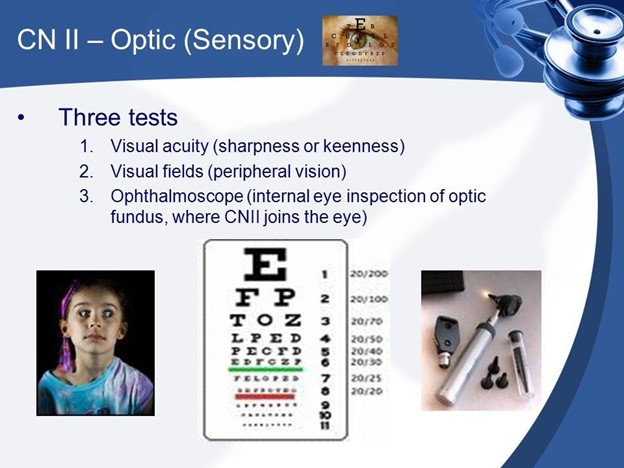A nurse is performing a neurological assessment for a client with head trauma. Which of the following assessments will give the nurse information about the function of cranial nerve II?

Instruct the client to look up and down without moving his head.
Ask the client to shrug his shoulders against passive resistance.
Observe the client's ability to smile and frown.
Have the client stand with eyes his closed and touch his nose.
The Correct Answer is A
Nursing Test Bank
Naxlex Comprehensive Predictor Exams
Related Questions
Correct Answer is ["He is now quiet and appears sleepy."]
Explanation
He is now quiet and appears sleepy. This is correct because it indicates a change in the level of consciousness, which could be a sign of increased intracranial pressure or bleeding in the brain.
Correct Answer is D
No explanation
Whether you are a student looking to ace your exams or a practicing nurse seeking to enhance your expertise , our nursing education contents will empower you with the confidence and competence to make a difference in the lives of patients and become a respected leader in the healthcare field.
Visit Naxlex, invest in your future and unlock endless possibilities with our unparalleled nursing education contents today
Report Wrong Answer on the Current Question
Do you disagree with the answer? If yes, what is your expected answer? Explain.
Kindly be descriptive with the issue you are facing.
